To Limit Pollution, The Chinese Are Faced With Giving Up an Ancient Tradition
For the Chinese, who invented both gun powder and fireworks, foregoing old traditions may clean up the air—just a bit
/https://tf-cmsv2-smithsonianmag-media.s3.amazonaws.com/filer/ed/e2/ede2febc-3f27-4239-9458-70d8dc8b04f6/8504378382_4f5212eeb6_o.jpg)
Keeping the air clean is one of China’s biggest challenges today. Large cities in the north, such as Beijing, fail air quality standards for health on more than half the days each year. In cities even farther north, such as Harbin, visibility last October was reduced to 50 feet due to severe air pollution, shutting down schools and airports. People walking the streets throughout China routinely wear face masks to protect their lungs. And what you see are not the simple cloth masks that doctors use for surgery; many Chinese wear elaborate breathing apparatuses, made of plastic with a variety of serious filtering systems.
The facts about air pollution are not disputed. As the New York Times recently reported, “China is the world’s largest consumer of coal, using about 45 percent of the global total. It is also the largest emitter of carbon dioxide.” In 2013, the country burned 3.61 billion tons of coal, which accounted for 49.3 percent of the world’s total consumption, according to China Daily. A quarter century earlier, however, China was burning just 610 million tons of coal. Scientists and policy experts are debating the country's plans for more renewable energy sources and the removal of older, more inefficient vehicles from the roads. But as a folklorist, something curious in the debates caught my interest. A couple of longstanding popular traditions had been caught up in a clash with government efforts to improve air quality.
Last January, in Beijing shortly before the start of the Spring Festival or Chinese New Year, large posters on the streets, especially in areas near the historic hutongs (or narrow alleyways) flatly announced that fireworks were prohibited. Reactions were mixed. The Chinese invented gunpowder and fireworks more than 2,000 years ago, and many people insist on setting off their own fireworks just as they always have, especially on the 15th day of the Spring Festival—known as the Lantern Festival—to bid farewell with a bang to the old year, and to ensure good luck for the coming year.
Such pyrotechnic displays in China have been occurring for millennia, but one of the earliest Western witnesses of these traditions was a British missionary to China, the Reverend George Smith. He observed a Lantern Festival on February 10, 1845, on the streets of Xiamen, Fujian Province, in southeastern China:
“A long pole was erected, fifty feet in height, hung round with cases of rockets and other combustibles. On its being lighted at the bottom, there was a rapid succession of squibs, roman-candles, guns, and rockets, which illuminated the sky to a great distance with their igneous masses. . . . A volley of lesser combustibles suddenly terminated in a beautiful cluster of grapes, which lasted for some time, and shed a deep blue light on the houses and walls for some distance around. A shower of golden rain was shortly after followed by an umbrella of fire, which suddenly flew open, amid the loud cheers of the spectators.”
Nearly 170 years later, some spectators are giving the same loud cheers, while others are bemoaning the costs to their health of such pyrotechnics. For instance, an article in the scientific journal Atmospheric Environment noted that fireworks contain an assortment of polluting chemicals, including potassium nitrates, potassium chlorate, potassium perchlorate, charcoal, sulfur, manganese, sodium oxalate, aluminum and iron dust powder, strontium nitrate, and barium nitrate. Based on samples collected during the Lantern Festival in Beijing in February 2006, the authors concluded that particulate matter in the air (including fine particles with diameters of 2.5 micrometers or less and respirable suspended particles with diameters of 10 micrometers or less—both of which are known to cause lung cancer) “went up over 6 and 4 times in the lantern day compared to the normal days.”
Similarly, the tradition of burning joss paper or “spirit money” to honor ancestors—especially during the seventh month or “Ghost Month” of the lunar year—is another Chinese tradition that creates dense smoke and thus reduces air quality. An article from 2011 in the scientific journal Aerosol and Air Quality Research noted that joss paper is “chiefly composed from bamboo and/or recycled waste paper,” which when burned creates significant amounts of particulate matter, polycyclic aromatic hydrocarbons (PAHs), and polychlorinated dibenzo-p-dioxin/dibenzofurans. The authors concluded that “PAHs concentrations in ambient air during festivals were observed to be several times higher than those during other times.” As a result, government officials in Hong Kong and elsewhere are asking temples and mausoleums to install special incinerators for burning the joss paper.
There may not be much that individual Chinese can do about their country’s reliance on burning coal for energy. But an increasing number of people understand that not setting off fireworks and not burning joss paper will have positive consequences. As 28-year-old Hua Jingwen who lives in Beijing told me, “I think we can still have fireworks here, but maybe not so many. It is not really necessary for every household to shoot off fireworks.”
Even if only one in four persons were to take this sort of positive action, the numbers will add up. After all, there are roughly 1.35 billion people living in China today; one in four means 337 million people, more than the total population of the United States.
/https://tf-cmsv2-smithsonianmag-media.s3.amazonaws.com/accounts/headshot/James_Deutsch.jpg)
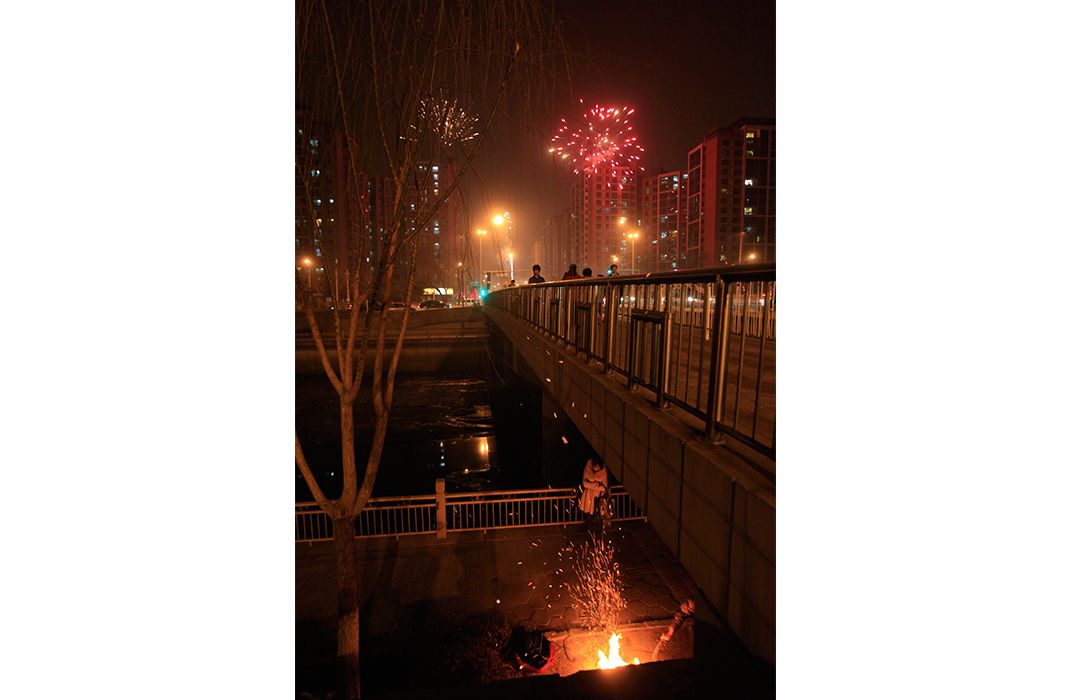
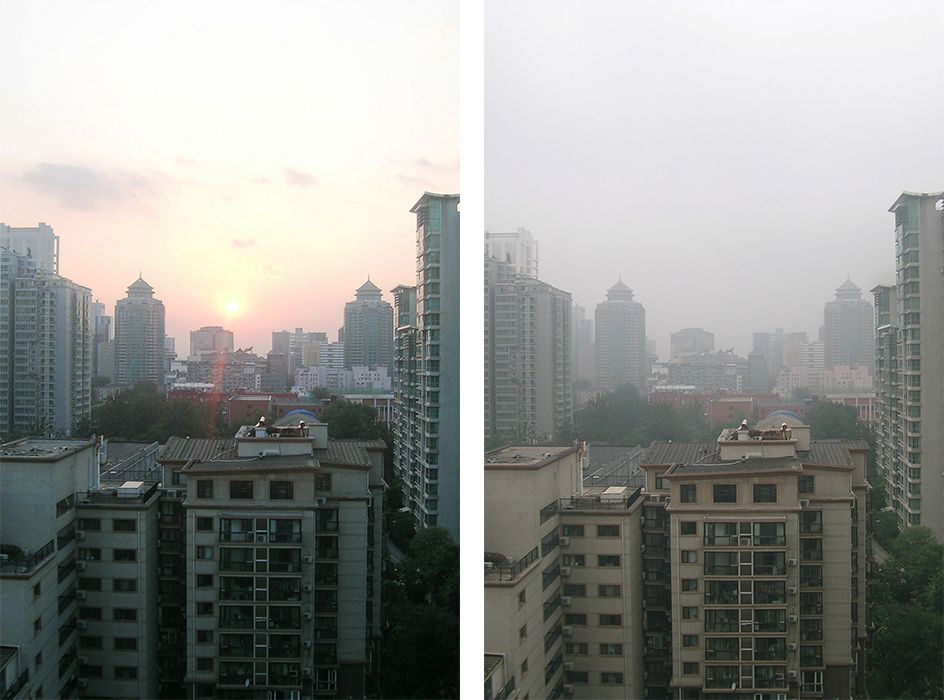
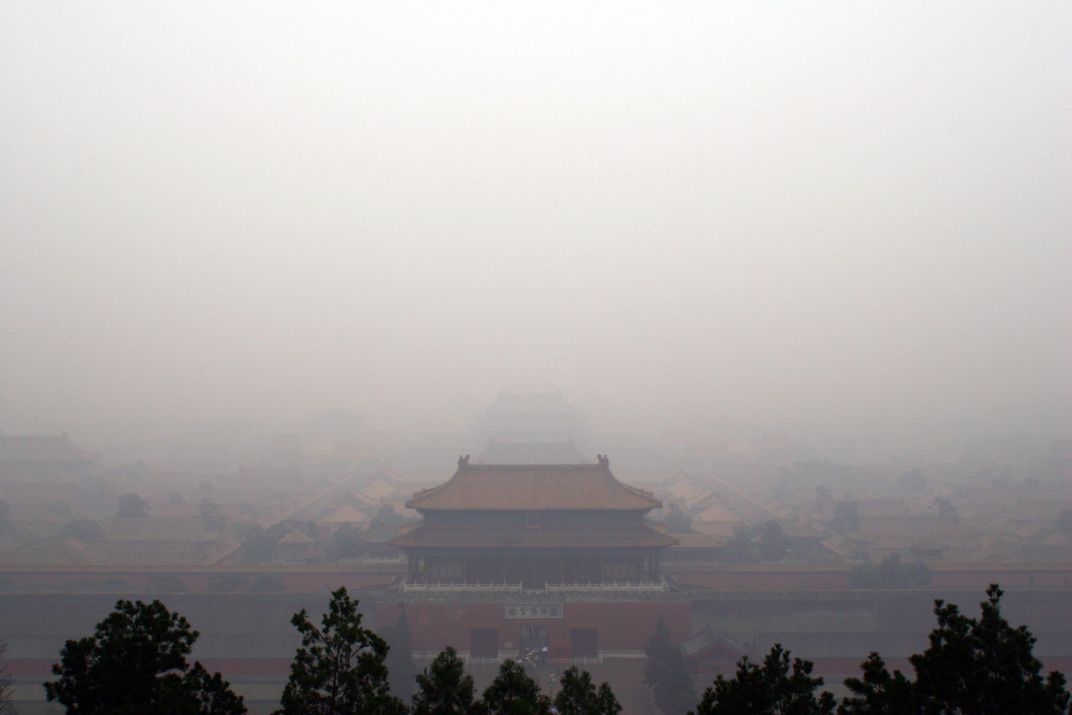
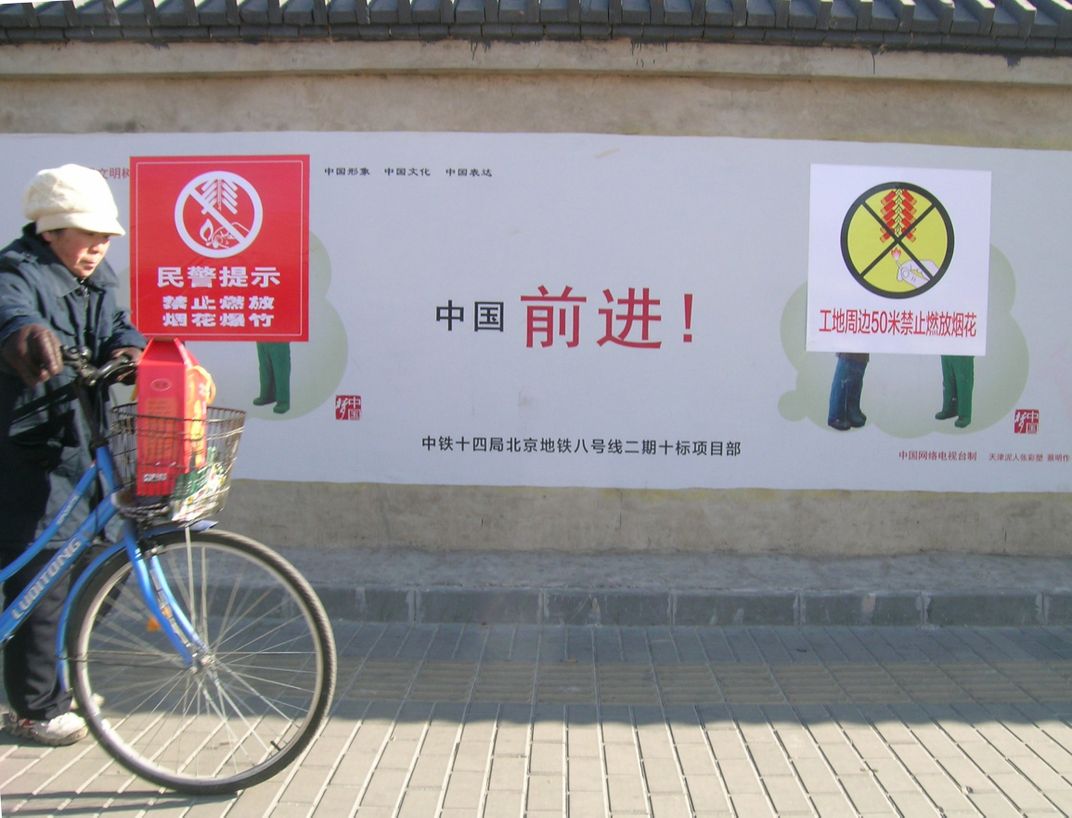
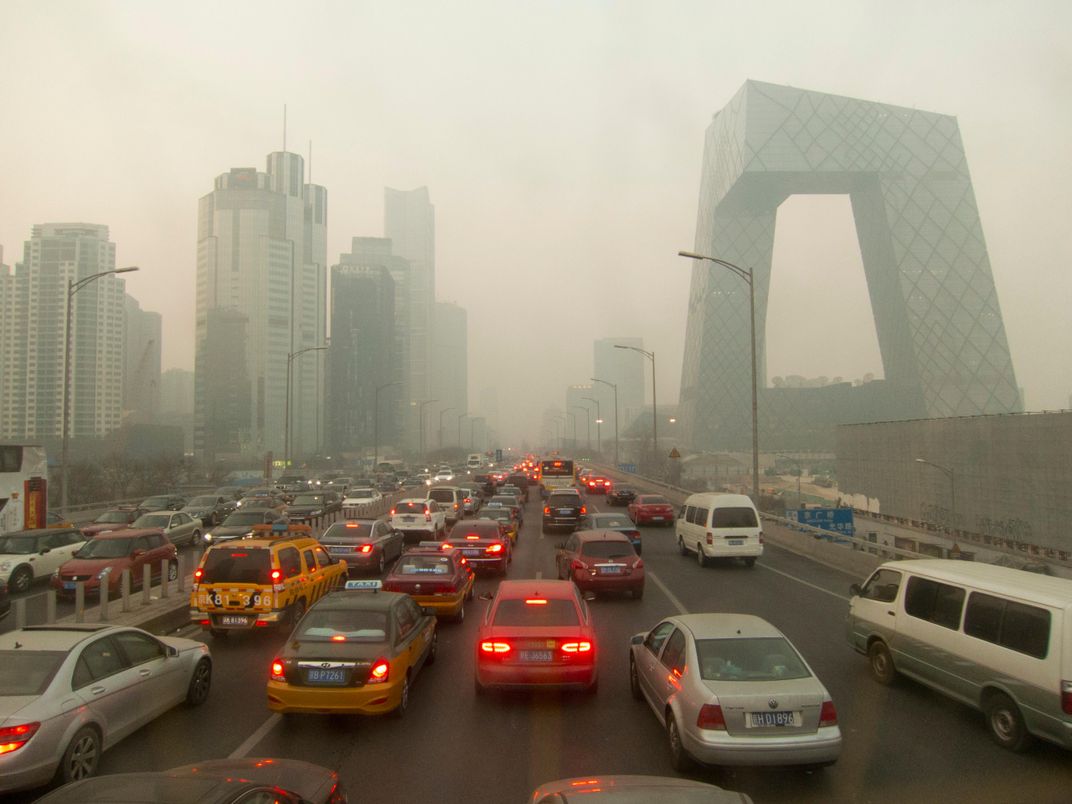
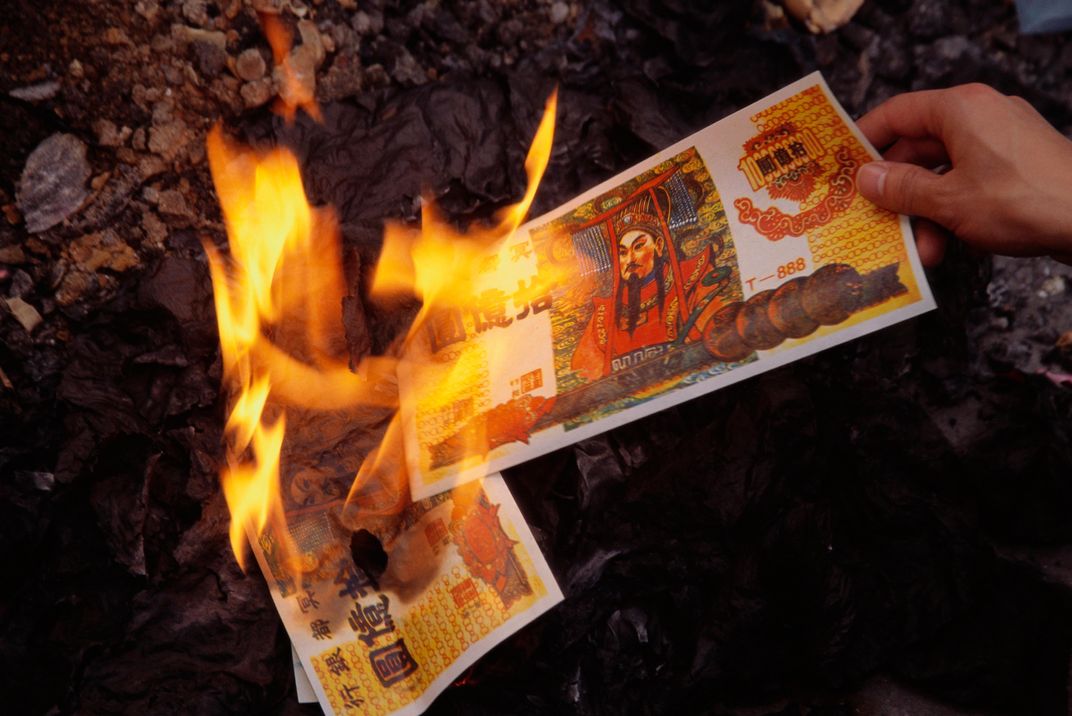
/https://tf-cmsv2-smithsonianmag-media.s3.amazonaws.com/accounts/headshot/James_Deutsch.jpg)